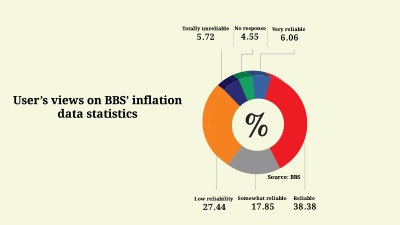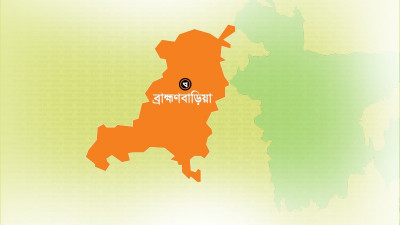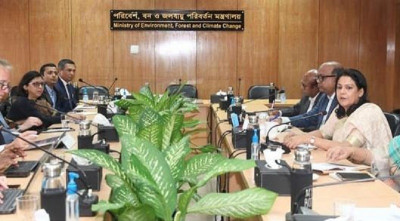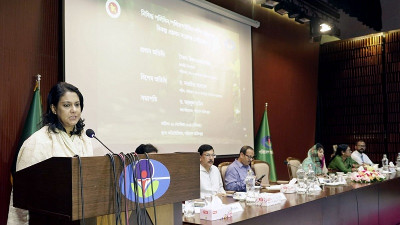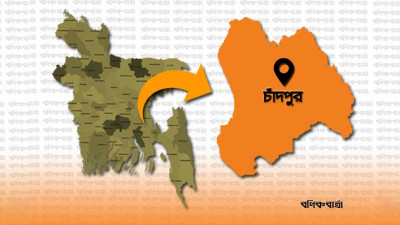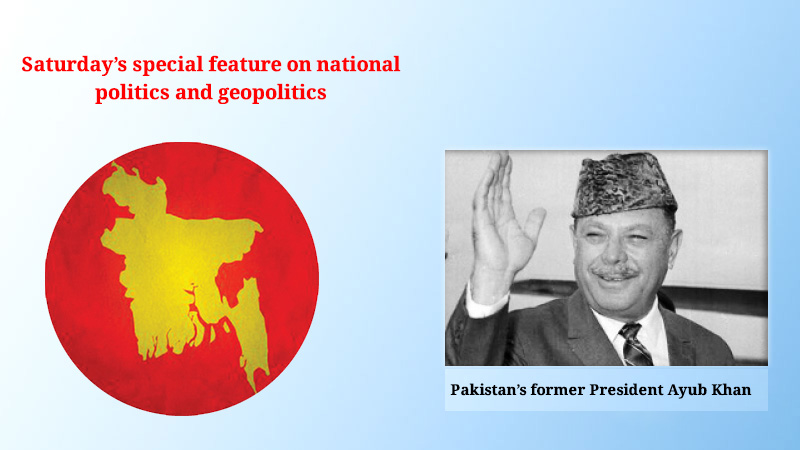 Photo: Bonik Barta
Photo: Bonik Barta Sheikh
Hasina left the country on August 5, following her ousting from power by a mass
uprising. During the July-August movement, many protesters were injured or
killed in clashes with the police and activists of the then-ruling Awami League
and its affiliated organizations. Following her ouster, demands have surfaced
from various quarters to ban the Awami League from politics. There are also
calls to ban those accused of genocide and other criminal activities from
political participation.
The
interim government’s Ministry of Law is also considering this matter. Recently,
in a consultative meeting on amending the ‘International Crimes (Tribunals)
Act, 1973’, the ministry proposed eight amendments. The eighth amendment
suggests that if any political party commits a crime under this law, the party
may be banned for up to 10 years.
Sixty-five
years ago, two laws similar to this were in effect in the country (then East
and West Pakistan) as ordinances. In October 1958, Pakistan’s military chief
Ayub Khan seized power through a military coup. The next day, he issued an
order abolishing the post of Prime Minister of Pakistan. Two ordinances were
later issued in this regard: the Public Office Disqualification Order (PODO)
and the Elective Bodies Disqualification Order (EBDO).
Under
these two orders, the then-military government gained the power to accuse any
public office holder and elected body member of misconduct. Special tribunals
were formed, and if misconduct was proven, the accused were banned from
contesting elections until December 31, 1966. These ordinances ended the
political careers of many politicians during that time.
Many
were banned from politics under these two ordinances. Based on them, charges
were brought against nearly one hundred top politicians, including Huseyn
Shaheed Suhrawardy, Sheikh Mujibur Rahman, and Khan Abdul Ghaffar Khan
(Frontier Gandhi). Additionally, over a thousand officials from Pakistan’s
civil service, foreign service, police service, and provincial service were
dismissed or forced into retirement. Now, questions are arising as to whether a
similar recurrence of PODO and EBDO might happen in present-day Bangladesh.
Those
appointed by the government to reform the country’s electoral and democratic
systems believe that any necessary steps can now be taken to preserve the
democratic order. When asked, Dr. Badiul Alam Majumder, head of the Interim
Government’s Electoral System Reform Commission, told Bonik Barta, “Those who
have destroyed our electoral system have violated our Constitution. One of the
fundamental structures of the Constitution is democracy. These principles are
inviolable. From 2014 to 2024, they have conducted one-sided and rigged
elections by violating the Constitution. While the Election Commissions have
tried to assert that their responsibility is solely to conduct elections, Article
118 of the Constitution makes the Election Commission an independent constitutional
body, and its members are protected against dismissal. They were given vast
powers. But the last three Election Commissions failed to exercise their
authority and fulfill their constitutional responsibilities. Instead, elections
during their tenure destroyed the electoral system and sent it into exile.
Therefore, I consider them the villains in the destruction of democracy. The
issue of bringing them to justice must be seriously considered to prevent
future occurrences of such crimes.”
Analysts
say that the Sheikh Hasina government placed trusted individuals of the ruling
party in all significant positions of the state. They have implemented the
government’s objectives in various ways, with many high-ranking officials
playing a major role in keeping the Awami League in power for an extended
period.
According
to BNP Secretary General Mirza Fakhrul Islam Alamgir, Sheikh Hasina has
continuously filed cases, imprisoned, and enforced disappearances against members
of opposition parties to prolong her hold on power and eliminate dissent in
independent Bangladesh. He recently told Bonik Barta, “Over the past 15 to 16
years, more than six hundred BNP members have been subjected to enforced
disappearances. Thousands of people have been shot dead. The Sheikh Hasina
government has filed false cases against 6 million people. These are fabricated
and false cases. Therefore, we have been protesting from the very beginning.
Just recently, I was in jail for our movement. Our party leaders have been
imprisoned, victimized, and tortured.”
From
the day after Sheikh Hasina left the country on August 5, 2024, cases of
genocide have begun to be filed against influential leaders. So far, more than
two dozen ministers, members of parliament, advisers, and top leaders of the
Awami League have been arrested in these cases. Over a thousand cases have been
filed across the country, with more than two hundred cases lodged specifically
against Sheikh Hasina, 181 of which involve allegations of murder.
Additionally,
the issue of imposing a ban on the Awami League’s politics is also coming to
the forefront. However, many believe that instead of banning individuals from
politics, they should be punished according to their crimes. In this context,
only the party itself may be banned from political participation.
In
this regard, Nasir Uddin of the Jatiya Nagorik Committee told Bonik Barta, “The
Awami League has two aspects—one is the party and the other is the individuals.
Therefore, both the individuals and the party should come under scrutiny. Many
individuals within the party are involved in murders. We want to bring them to
justice. Those involved in the murders must be banned through the judicial
process. However, I am against banning individuals indiscriminately. We believe
that those directly involved in the murders should be tried. But we oppose indiscriminate
bans on individuals, allowing for the possibility of redemption and
reconciliation for those not directly involved in the killings.”
He
further stated, “Additionally, many have participated in the killings using the
banner of this party. Therefore, the Awami League, as a party, is accountable
in this regard. If the judges in the judicial process deem it necessary to ban
the party, then they should do so. However, the Nagorik Committee believes that
given the Awami League’s involvement in the deaths of over a thousand people
and injuries to more than twenty to thirty thousand, the party should not
engage in political activities under its banner. This is a banner of murderers.
The Awami League should not return under this banner in Bangladesh.”

